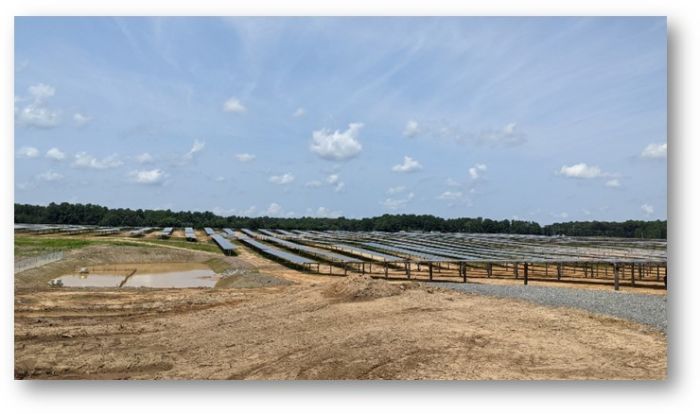




Project Overview
In May of 2021, Vertech embarked on a project to supply their client, DEPCOM Power, with instrumentation and control solutions for their solar photovoltaic (PV) plant.
Vertech provides world-class automation solutions for companies in nearly every industry, including solar energy. Their designs include modern automation systems, supervisory control and data-acquisition (SCADA) systems, manufacturing execution systems, and operations technology networks to solve industry problems and improve operational efficiency, visibility, and security.
Goal
For this project, Vertech was developing a system for DEPCOM, a company that provides PV solar engineering, procurement, and construction solutions (EPC) and operations/maintenance solutions for customers. Vertech’s goal was to provide a bifacial meteorological (MET) solution for DEPCOM to deploy onto the Westmoreland Solar Project site in Warsaw, Virginia.
Challenges
To meet the needs of the project, Vertech had to provide a bifacial MET solution for a relatively small solar PV plant within their client’s budget. This small project had big instrumentation needs. Key requirements of the project were that all data must be maintained even through power failures and that the design should meet the requirements of a 20-year life cycle.
Solution
Vertech delivered a solution that included global horizontal irradiance (GHI), plane of array (POA), albedo, reflected in POA (RPOA), and direct normal irradiance (DNI) pyranometers, as well as a weather station and module temperature sensors. The design used battery backup for all MET data and supplied that data in real time to a SCADA system for operator awareness.
Campbell Scientific’s solutions were flexible and easily integrated with other vendor equipment. The products’ adaptability allowed for easy adjustments in the design that were requested by the owner and EPC companies.
Products
Vertech used Campbell Scientific’s MeteoPV and CS240DM products.
MeteoPV
The MeteoPV datalogger was used for the albedometer. This gave Vertech’s client a small profile panel that could be located remotely at this site if needed. The customer wanted the option to move this platform around the plant, and the MeteoPV design gave them that flexibility.
The versatility of the MeteoPV and the mounting options gave Vertech the ability to deliver a world-class MET solution that fit both the requirements and the budget.
CS240DM
The CS240DM Back-of-Module (BOM) sensors have become the standard for all Vertech projects. These sensors allow for reliable temperature readings without the need to calculate cable length compensation, and the sensors are easy to install.
Results
Vertech was able to deliver a solid MET data solution that not only met but exceeded the customer’s expectations and even adapted to last-minute design requests. Even in the face of global supply chain issues, this project has been a success. Campbell Scientific’s customer service team offered support to keep Vertech informed and supplied accurate, logistical information throughout this process.
Case Study Summary
Application
A small-scale solar project with bifacial PV modules and battery backupLocation
Warsaw, VirginiaProducts Used
CS240DM MeteoPVParticipating Organizations
DEPCOM PowerMeasured Parameters
Global horizontal irradiance (GHI), plane of array (POA), albedo, reflected in plane of array (RPOA), direct normal irradiance (DNI), air temperatureRelated Website
Vertech Projects, Services, and OpportunitiesView the PDF